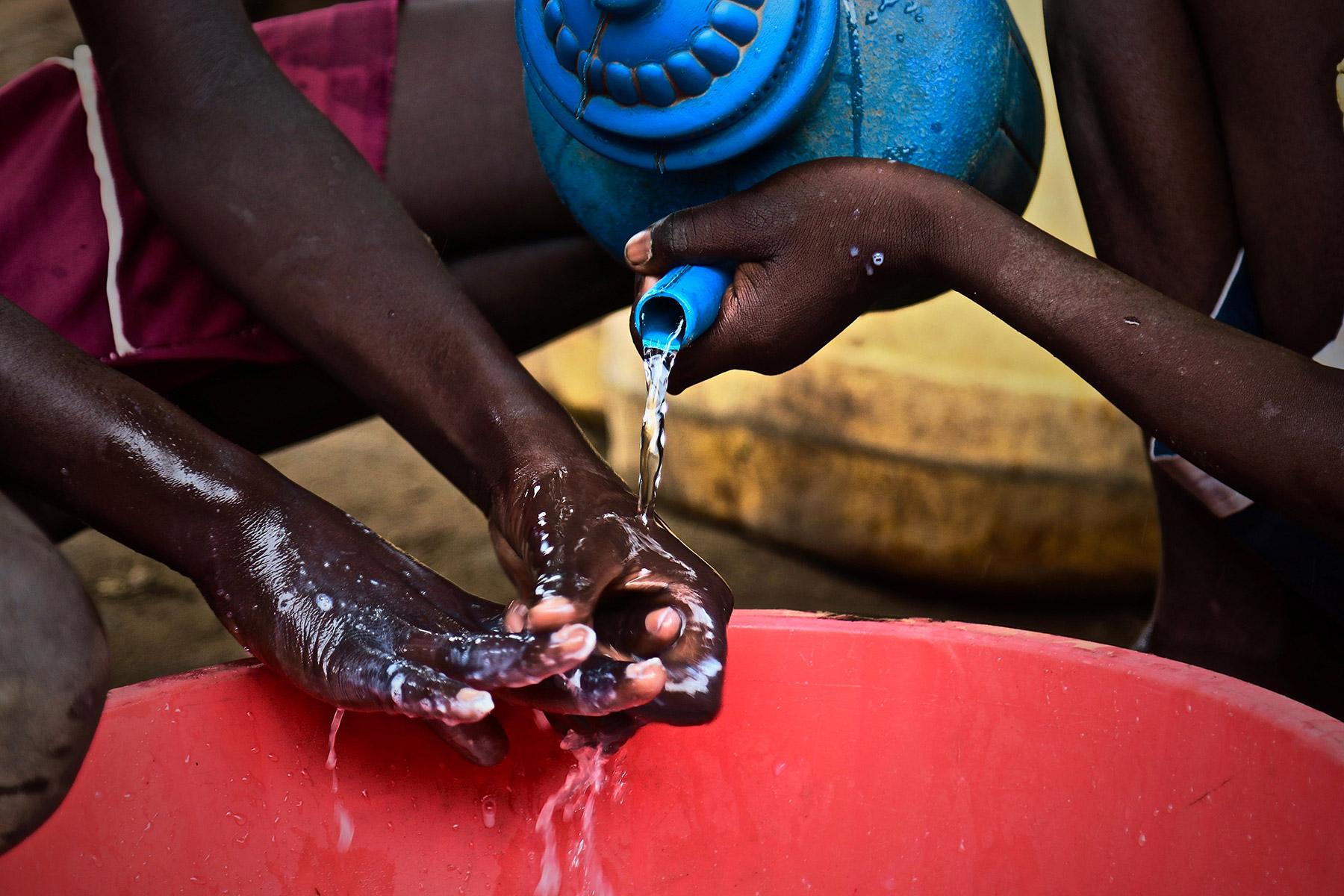Handwashing education leads to reduced transmission of diseases and improved overall hygiene practices. Handwashing education plays a crucial role in promoting good hygiene practices and preventing the spread of diseases.
By teaching individuals about the importance of handwashing and proper techniques, it helps reduce the transmission of germs and bacteria. This, in turn, leads to improved overall hygiene, as well as a decreased risk of contracting various illnesses. Handwashing education empowers individuals to take responsibility for their health and the health of those around them, making it an essential component of any public health campaign.
Why Handwashing Education Matters
Handwashing education plays a crucial role in preventing the spread of germs, improving public health outcomes, and reducing the risk of infections. By educating individuals about the importance of proper hand hygiene, they become aware of the impact their actions have on their own health and the health of those around them.
When individuals are educated about handwashing techniques, they are more likely to practice good hand hygiene, which helps to prevent the transmission of germs and reduce the rates of infections. Regular handwashing with soap and water can effectively remove bacteria and viruses from the hands, preventing illnesses such as colds, flu, and gastrointestinal infections.
Additionally, handwashing education creates a culture of cleanliness and hygiene, leading to healthier communities. When individuals understand the importance of hand hygiene, they are more likely to adopt proper handwashing practices in their daily lives. As a result, the overall public health improves, and the incidence of communicable diseases decreases.
The Impact Of Handwashing Education On Personal Hygiene
The impact of handwashing education on personal hygiene cannot be understated. By encouraging good hand hygiene habits, individuals are more likely to practice regular and thorough handwashing. This simple yet effective act can drastically reduce the transmission of harmful bacteria, viruses, and other pathogens.
Regular handwashing is especially crucial in preventing the spread of diseases, particularly respiratory and gastrointestinal illnesses. It is a proven method to halt the transmission of germs from one person to another. Proper hand hygiene also plays a pivotal role in promoting overall health and wellbeing.
By understanding the importance of handwashing and being educated on proper techniques, individuals are empowered to protect themselves and others from illness. Handwashing education equips people with the knowledge and skills necessary to make hand hygiene a habit in their daily lives.
The Effectiveness Of Handwashing Education Programs
Handwashing education programs have proven to be highly effective in promoting proper hygiene practices and preventing the spread of diseases. These programs play a crucial role in raising awareness and changing behavior among individuals and communities. By evaluating the success of handwashing campaigns, we can gain valuable insights into their impact.
Evaluating The Success Of Handwashing Campaigns
Assessing behavior change and adherence
One key aspect of evaluating handwashing education programs is assessing the extent to which they drive behavior change and adherence to proper handwashing techniques. Conducting surveys, interviews, and observations can help determine whether individuals are adopting and maintaining the recommended handwashing practices.
Measuring the impact on disease prevention
Another important factor to consider when evaluating handwashing campaigns is measuring their impact on disease prevention. By monitoring rates of specific diseases, such as respiratory infections, gastrointestinal illnesses, and skin infections, we can determine the effectiveness of handwashing programs in reducing the transmission of pathogens.
The Social And Economic Benefits Of Handwashing Education
The Social and Economic Benefits of Handwashing Education
Handwashing education has a range of effects that contribute to social and economic benefits. Firstly, it helps in decreasing healthcare costs by preventing the spread of diseases and infections. By promoting proper hand hygiene practices, individuals are less likely to get sick, leading to reduced healthcare expenses for both individuals and society as a whole. Furthermore, handwashing education has been proven to have an impact on increasing productivity and attendance. When individuals practice good hand hygiene, they are less likely to get infected and miss work or school. This ultimately improves overall productivity and attendance rates, benefiting both employers and educational institutions. Lastly, handwashing education plays a vital role in creating healthier communities. When people understand the importance of hand hygiene, they are more likely to adopt these practices, leading to improved public health outcomes and a stronger sense of community well-being.
Case Studies: Successful Handwashing Education Initiatives
Case Studies: Successful Handwashing Education Initiatives
Implementing effective strategies in schools
- Introducing interactive handwashing lessons to engage students
- Providing easily accessible handwashing stations in school premises
- Teaching proper handwashing techniques through visual aids and demonstrations
- Encouraging students to practice regular handwashing by incorporating it into daily routines
Engaging communities through awareness campaigns
- Organizing community events to raise awareness about the importance of handwashing
- Distributing educational materials such as brochures and posters
- Collaborating with local influencers and organizations to amplify the message
- Utilizing social media platforms to promote handwashing education
Collaborating with healthcare organizations and professionals
- Partnering with hospitals and clinics to conduct handwashing workshops
- Involving healthcare professionals in delivering educational sessions
- Seeking guidance from experts to design effective handwashing curriculum
- Providing resources and support to healthcare providers in promoting hand hygiene
Overcoming Challenges In Handwashing Education
Lack of access to clean water and sanitation facilities can be a major barrier to effective handwashing education. In many communities, individuals may struggle to find clean water sources or may not have access to appropriate sanitation facilities, making it difficult for them to practice proper hand hygiene. This lack of access not only hinders their ability to learn about handwashing but also poses a risk to their overall health and well-being.
Cultural and social barriers can also impact the effectiveness of handwashing education. Different cultures may have varying beliefs and practices surrounding hygiene, which could influence individuals’ willingness to adopt proper handwashing techniques. Additionally, socio-economic factors, such as poverty and limited education, can create obstacles to understanding and implementing hand hygiene practices.
Educating vulnerable populations is crucial in overcoming these challenges. Providing targeted handwashing education programs that take into account the unique needs and circumstances of different communities can help improve knowledge and behavior change. Community engagement, culturally sensitive messaging, and innovative approaches like mobile technology can also play a significant role in promoting hand hygiene practices among vulnerable populations.
The Future Of Handwashing Education
htmlHandwashing Education brings about a multitude of positive effects. One of the future directions for handwashing education is incorporating technology and innovation. By leveraging digital platforms, interactive apps, and virtual reality experiences, handwashing education can become more engaging and accessible to a wider audience. Furthermore, collaboration between government, NGOs, and the private sector is crucial in ensuring the effectiveness and sustainability of handwashing education initiatives. By pooling resources, sharing knowledge and expertise, and coordinating efforts, these sectors can work together to develop comprehensive and impactful programs. Additionally, continual research is required to improve strategies and outcomes. This involves studying behavioral change, exploring novel teaching methods, and measuring the long-term impact of handwashing education. Through these efforts, handwashing education can empower individuals and communities for years to come.

Credit: www.citronhygiene.com
Frequently Asked Questions Of Which Effects Result From Handwashing Education
How Does Hygiene Affect Your Health?
Hygiene directly impacts your health. Poor hygiene increases the risk of infections and diseases. Regular hygiene practices, like handwashing and oral care, can prevent the spread of germs and maintain overall health. Good hygiene habits are crucial for a healthy lifestyle.
What Does This Hygiene Practice Help Prevent?
This hygiene practice helps prevent the spread of germs, diseases, and infections.
What Are The Diseases Caused By Lack Of Hygiene?
Poor hygiene can lead to a range of diseases, including infections like diarrhea, respiratory diseases, skin infections, and foodborne illnesses. These diseases are caused by the presence of harmful bacteria, viruses, and other pathogens that thrive in unclean environments. Regular hygiene practices like handwashing and proper sanitation can help prevent such diseases.
Which Is A Possible Outcome From This Sleep Shortage?
Possible outcomes from sleep shortage can include decreased cognitive function, weakened immune system, increased risk of chronic diseases, mood disturbances, and decreased productivity.
Conclusion
Proper handwashing education plays a vital role in preventing the spread of diseases and maintaining good hygiene. By instilling this habit, individuals can experience a reduction in illness and absenteeism rates. Moreover, promoting handwashing education can lead to healthier communities and improved overall well-being.
Emphasizing the importance of hand hygiene creates a ripple effect, promoting a healthier society as a whole.







